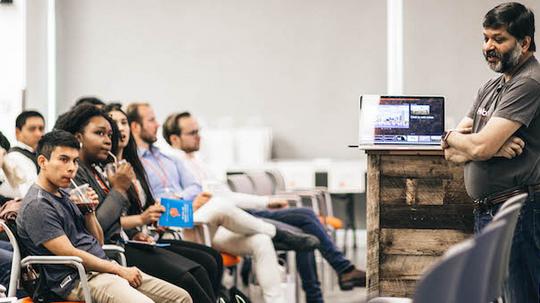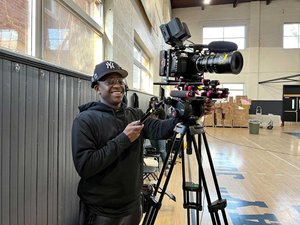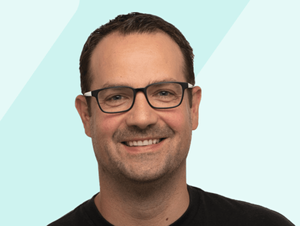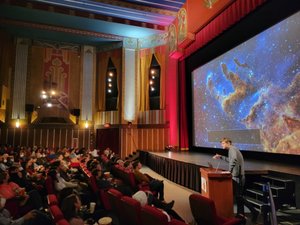
When tech journalist Dan Lyons released his scathing book last year on his former employer, HubSpot, one of the bigger criticisms he made was about the Cambridge marketing tech company's lack of diversity, in terms of race, gender and age.
After the book came out, HubSpot co-founders Dharmesh Shah and Brian Halligan responded to Disrupted: My Misadventure in the Start-Up Bubble, agreeing that HubSpot needs to do better at having a more diverse workforce. But they said they were already working on diversity initiatives and planned to release some diversity metrics the following year.
Less than a year after Shah and Halligan's post, the company has released its first diversity report, following fellow local tech company ezCater and a number of West Coast tech companies that began publishing reports a few years ago.
The report breaks down HubSpot's workforce by gender, age and ethnicity, and it shows that does that the company does indeed have a ways to go in terms of becoming more diverse. Overall, the company's workforce is 60 percent male and 85 percent white, with employees between the ages of 16 and 35 making up 89 percent of the workforce. (One of Lyons' criticisms was that HubSpot and other startups discriminated against older workers like himself.)
On the leadership side, HubSpot is even less diverse: 68 percent male and 92 percent white.
I talked to Katie Burke, vice president of culture and experience at HubSpot, about why the company decided to publish the report and how it's aiming to improve the diversity of its workforce, as well as supporting diverse employees who are already there.
As for why HubSpot published the data, Burke told me that "humility and transparency are two parts of our core values." While it's easy to share things that HubSpot does well, she said, it's also important "to be public about things we are not perfect on."
It's also about showing potential candidates, especially minorities, HubSpot's commitment to diversity so that the company can attract and retain a more diverse workforce, Burke added.
"We really view our diversity initiatives as a commitment to our employees, our business and our customers.
Beyond it just being the right thing to do, having a more diverse workforce also helps the business side, Burke said.
"From a sheer business imperative perspective, as we go into new markets, we have an obligation to have a team that has diversity of thought, diversity of language, diversity of gender, just to name a few," Burke said. "We really view our diversity initiatives as a commitment to our employees, our business and our customers."
The company is doing a number of things to improve its diversity efforts, Burke said. That includes the company's new Rooney Rule, introduced in June, that requires HubSpot to interview at least one woman or diverse candidate for every director-level role or higher. The company also has The Norrington Grant, named after HubSpot board member Lorrie Norrington, that gives senior leaders the budget flexibility to compete for hiring minorities in director roles or higher.
For attracting older employees, HubSpot has programs in place to support working parents, including childcare support from Care.com and family leave. The company has also changed the language in its employer marketing to get rid of terms like "digital natives" that seem to favor younger people over older people.
HubSpot has a few diversity groups on campus, including Women at HubSpot, People of Color at HubSpot and HubSpot's LGBTQ Alliance — all of which create safe spaces, as well as provide career development resources and educational opportunities. The company also held an event last fall for first-generation students interested in tech careers who were either not born in the U.S., whose parents weren't born in the U.S., or who were the first in their families to pursue the corporate world. The day-long event began with a keynote address from Shah, a first-gen tech worker himself.
What has allowed HubSpot to support these programs, Burke said, is a mix of support from HubSpot's executive ranks and new ideas for diversity initiatives and events from employees. For instance, the LGBTQ Alliance was started by Melissa Obleada, who previously told me that workers at HubSpot are given the freedom to pursue new initiatives like this.
HubSpot is also getting involved with external diversity programs, including Hack Diversity, a new initiative to support black and Latino tech talent that is run by the New England Venture Capital Association and other local groups.








